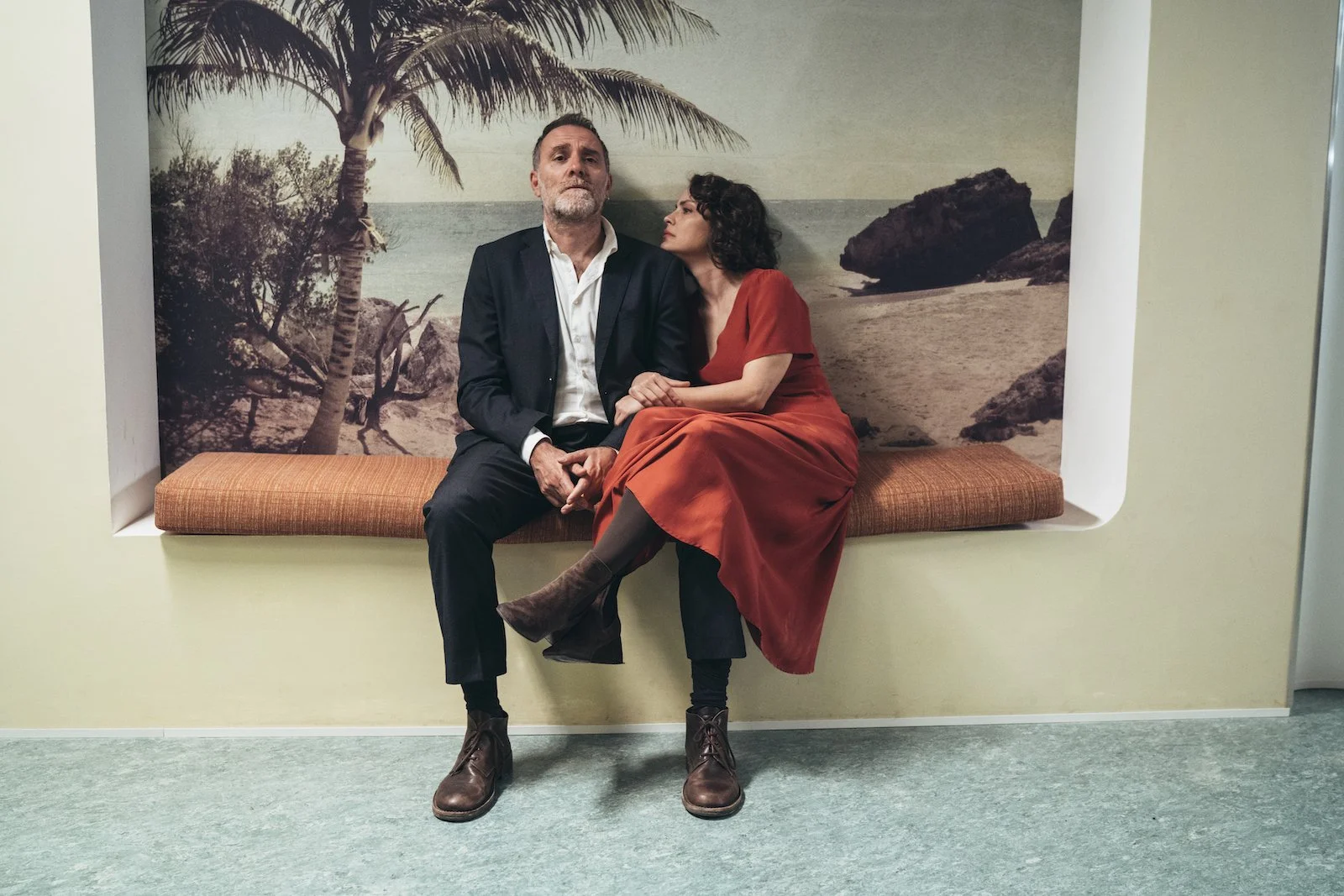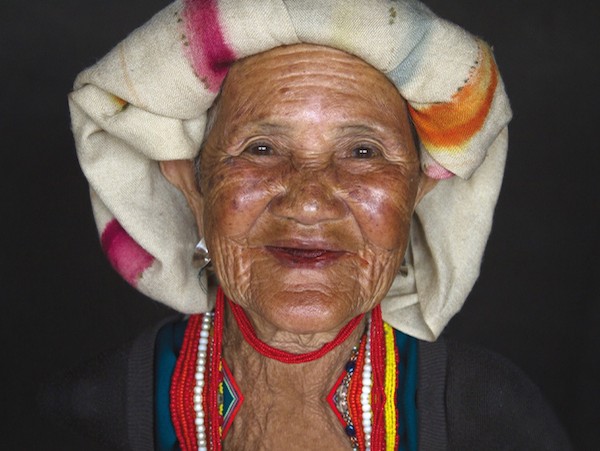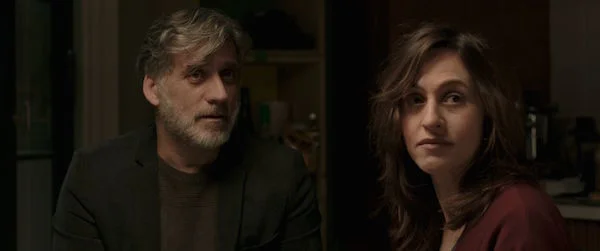In his latest film, a crucial masterpiece titled ‘Why War’, Amos Gitai reminds us of an exchange of letters between Sigmund Freud, the father of modern psychoanalysis, and Albert Einstein, the scientific genius. If only we’d listen to these brilliant men.
Read MoreVenice Orizzonti opening film 'Nonostante' by Valerio Mastandrea is an ode to love and loss
It’s not often that a film changes the chemistry of my beliefs. ‘Nonostante’ which in English is called ‘Feeling Better’ is one of those films and I’m better for watching it — also after interviewing its talented filmmaker and star.
Read More'Why War' may be Amos Gitai's most important film to date and will screen at this year's Venice Film Festival
For a man whose personal mission has been to “build bridges through cinema,” as he told La Repubblica newspaper in an interview just published this week, his latest film may prove the most important peace-making link yet.
Read MoreVenice Film Festival line up includes latest from Amos Gitai, Scandar Copti, Pedro Almodóvar, plus a series from Alfonso Cuarón, Luca Guadagnino's 'Queer' and Pablo Larraín's 'Maria'
All wrapped up with the Lady Gaga starrer ‘Joker: Folie à Deux’, Tunisian gem ‘Aïcha’ by Mehdi Barsaoui and ‘Wolfs’ starring George Clooney and Brad Pitt — talk about a festival for the stars!
Read MoreOlmo Schnabel talks directing 'Pet Shop Days', dual identities & laws of attraction
Olmo Schnabel’s directorial debut is everything you could wish for in a film, from a man with such an impressive background — artist and filmmaker Julian is his dad and mom is Spanish actress Olatz López Garmendia — but also someone who is perfectly at ease with both his American and Spanish sides. And refreshingly believes life is best when lived outside the boxes of convention.
Read More“A collector of contradictions”: Amos Gitai takes us on a voyage of thinking with ‘A Tramway in Jerusalem’
“And despite the clamors and the violence, we tried to preserve in our hearts the memory of a happy sea, of a remembered hill, the smile of a beloved face.” — Albert Camus from ‘Resistance, Rebellion and Death: Essays’
As I watched Amos Gitai’s latest ‘A Tramway in Jerusalem’ with the usual anticipation I dedicate to all the works of the visionary Israeli filmmaker, I looked for the funny. After all, Gitai himself, in his director’s notes called Tramway “an optimistic and ironic metaphor of the divided city of Jerusalem”. In the synopsis of the film, the word “comedy” is used yet when I watched ‘A Tramway in Jerusalem’, more than once, I cried. Long, perfectly needed tears. The film world premiered out of competition at this year’s Venice International Film Festival.
Read MorePHOTO BY LORENZO PIERMATTEI
Trine Dyrholm in Susanna Nicchiarelli’s ‘Nico 1988’
Talking ‘Nico 1988’ with Susanna Nicchiarelli and Trine Dyrholm
From a haunting first image of Christa Päffgen portrayed as a child watching Berlin burn in the distance with her mother at the end of the Second World War, to the core of her film ‘Nico 1988’ which concentrates on the last three years of the rockstar’s life, filmmaker Susanna Nicchiarelli keeps us, her audience, spellbound. ‘Nico 1988’ opened the Orizzonti section of this year’s Venice Film Festival and for me, the event started then and there, with this touching, moving, electrifying yet perfectly human masterpiece.
The life of Nico went from teenage model to Velvet Underground singer and Andy Warhol muse, to, as the artist himself famously stated, becoming “a fat junkie” and disappearing — all in the blink of an eye. Yet when the world wanted her to go away, as they do with pretty women once they turn, eh hum... older, say thirty, Nico found her second wind. She dyed her hair, started wearing head to toe black and became the original mistress of darkness, crooning songs about her existence that still send shivers down every woman’s spine, they are so true to life!
The film screens the weekend of April 26th in NYC, as part of the Tribeca Film Festival. Book tickets on the TFF website.
Read MoreA still from ‘Human’ by Yann Arthus-Bertrand
“Cinema with a Conscience”: Five Movies that Changed My Life
We’ve all experienced the positive power of cinema. It is that moment, at the end of a movie, right before the lights come back on and as the credits roll by, when we feel we can change the world. We feel invigorated, wish to do better, want to be better and walk out of the theater with a new spring in our step. Sometimes, if we’re lucky, that energy, the magic of the movies, stays with us in our daily lives and continues to inspire a change that can become momentous.
Read MorePHOTO BY GIORA BEJACH
Lior Ashkenazi and Sarah Adler in still from Samuel Maoz’s ‘Foxtrot’
Talking ‘Foxtrot’ with Lior Ashkenazi, Sarah Adler and Samuel Maoz in Venice
In a great film, there is always a moment when things change — that instance when the viewer is caught off guard, and left with an indelible feeling to take home. I consider it the cinematic equivalent of that famous Maya Angelou quote “I’ve learned that people will forget what you said, people will forget what you did, but people will never forget how you made them feel.” Personally speaking, a truly successful movie is one where that moment remains with me, hours later, casting a spell over my heart and soul.
Samuel Maoz’s ‘Foxtrot’ is that film. More than twelve hours after watching it at the Venice Film Festival where it is featured in the main Competition section, I’m still only barely able to process it emotionally. Even though the filmmaker created an artful, visually stunning, sonically powerful, perfectly acted, intellectually stimulating and utterly entertaining film — I can just remember how it made me feel. I doubt I will ever forget actually.
Read More







